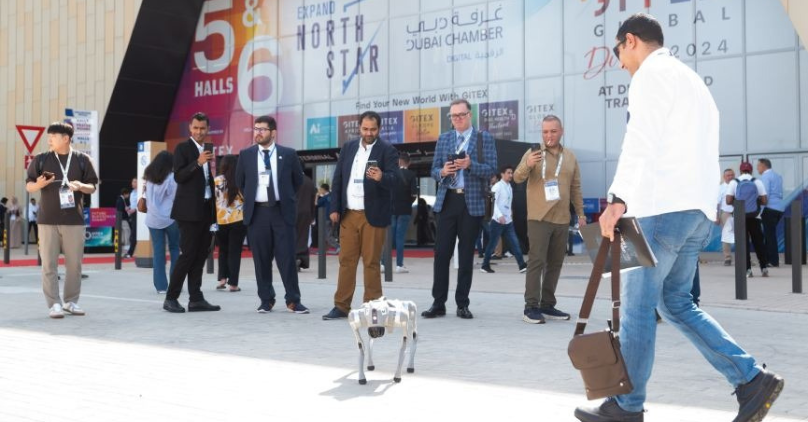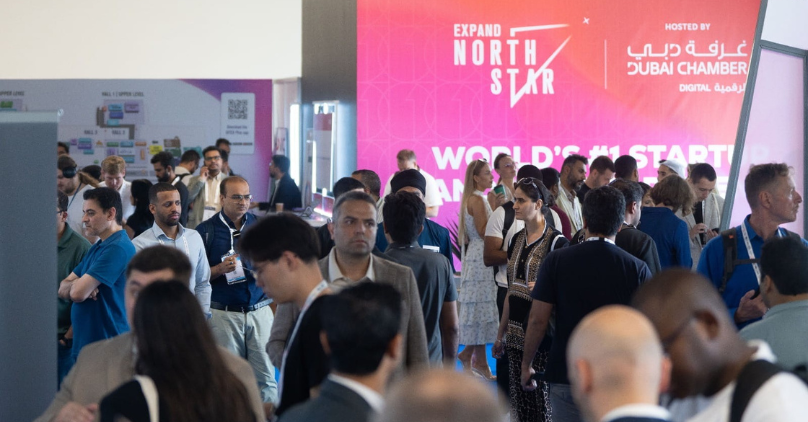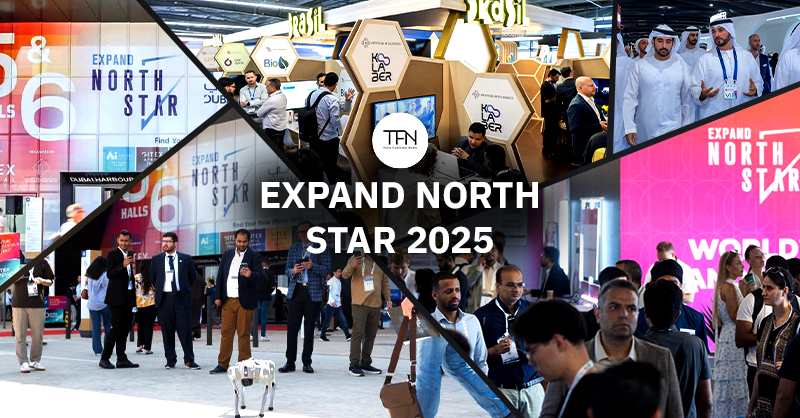When Expand North Star first debuted at GITEX in 2016, it was a small gathering of regional entrepreneurs. Fast forward to 2025, and the event has evolved into a flagship global startup and investor summit.
Organised by the Dubai World Trade Centre and hosted by the Dubai Chamber of Digital Economy, the event brought together 2,000 startups (41% from Asia, 18% from Europe and 22% focused solely on AI) along with 40 unicorns and 1,200 investors overseeing a combined $1.1 trillion in assets. Delegations from 180 countries rubbed shoulders with 500 homegrown digital ventures (116 of them Emirati), and national pavilions appeared for the first time from the US, Syria, Ecuador and Chile.
Expand North Star – 10th Edition
The world’s largest event for startups and investors
+2,000 startups
40 unicorn companies
+1,200 investors from 180 countries
(managing assets worth over USD 1.1 trillion)
Organised by: Dubai World Trade Centre (DWTC)
Hosted by: Dubai Chamber… pic.twitter.com/gPWmnPULkW
— Dubai Media Office (@DXBMediaOffice) October 12, 2025
From October 12–15, TFN attended the 10th-anniversary edition that showcased the highest share of growth and late-stage startups ever seen at a tech event, cementing its status as a launchpad for scaling ventures. The four-day programme facilitated 13,000 pre-scheduled meetings, driving global deal flow.
Here’s what it was like!
The ambition of attracting 10,000 AI companies over the next five years
Dubai’s ambitious goal to attract 10,000 AI companies by 2030 took centre stage. His Excellency Omar Al Olama, Minister of State for Artificial Intelligence and Digital Economy, emphasised this vision as “proving the impossible.”
His Excellency Omar Al Olama said, “The government’s goal is to attract 10,000 AI companies into the UAE over the next five years. We already have over 1,500 pure AI companies, which is the highest in the region. But we don’t believe we’ve reached the endpoint. This is just the starting point.”
“To maintain our competitive edge, we need to actually bring in producers because the market share that we have captured in the past five decades is there because we actually invested in new ways of doing business,” he added.
This message aligns seamlessly with the UAE’s new national initiative, “The Emirates: The Startup Capital of the World,” which targets 30,000 new jobs emerging by 2030 and aims for at least 10 new unicorns by 2031.
This year’s summit welcomed leaders of 40 unicorns valued collectively at $900 billion, including standout companies such as PsiQuantum, a quantum computing powerhouse valued at $68 billion; talabat, the dominant delivery platform from Kuwait valued at $8.5 billion; Andalusia Labs, a local UAE startup that reached unicorn status in under a year; and Carousell, Southeast Asia’s well-known e-commerce player.
AI, climate tech, and deep tech innovations
The event also highlighted advancements in AI, climate tech, and deep tech. In an exclusive conversation with TFN, Saeed Al Falasi, an Executive Director of the Dubai Centre of AI at Dubai Future Foundation, discussed several emerging technologies that are evolving, primarily focused on AI and its applications.
This includes AI-driven live transcription and translation, use of AI avatars for multilingual marketing and awareness campaigns, certification systems for AI companies to ensure trust and technical legitimacy, as well as “green” data centres powered by solar energy, to reduce AI’s energy footprint.

Although the Arab States host just 49 climate-tech startups compared to nearly 3,000 in Europe, regional ventures are making notable strides in sustainable mobility, clean energy, agriculture, and industry diversification. A dedicated North Star Green Impact zone showcased startups at the forefront of environmental solutions.
The stubborn female funding gap
Yet, despite these impressive developments, gender disparities remain a stubborn challenge. Women-led startups in MENA secured only 1.2% of VC funding in Q1 2025, barely above the global average of 2%. Out of 149 deals, nearly 80% went to male-founded startups, with only 6% led solely by women.
When we asked Saeed Al Falasi about female representation in the startup ecosystem, he elaborated to TFN, “ We don’t really distinguish between male and female, but … one of the key aspects of being an entrepreneur is the ability to take risks. And perhaps that’s one of the reasons that we see more males willing to take that risk than females.”
Al Falasi didn’t share the statistical numbers with TFN.
When we asked about female founders and the diversity representation in an exclusive conversation with Saeed Al Gergawi, VP of Dubai Chamber of Digital Economy, he told TFN, “The answer is yes. We’re seeing in the startup scene, and we’re seeing a lot of surprisingly hidden founders who want to be found. In particular, when we talk about wellness, restaurants, as well as the fashion industry, are usually dominated here in the region.”
He added, “And the ecosystem supports those who are talented. In our create app initiative, we have over 75% of the participants, with a high percentage of female participants, reflecting the supportive environment for female entrepreneurs.”
Addressing the funding gap will demand systemic change: investor accountability through gender-lens reporting, targeted risk capital for female-led startups, and strong mentorship structures to raise visibility for women founders.
The road ahead?
Expand North Star 2025 offered a clear snapshot of the global startup landscape, where technology bets intersect development challenges. AI companies accounted for 22% of participants, followed by climate tech (13%), healthtech (11%), and fintech (11%), reflecting shifting priorities in innovation.

As the Middle East strives to narrow gaps with global tech giants, Expand North Star stands out for its potent compound of trillion-dollar capital, government backing, and strategic market connections.
The true test will be whether this momentum yields sustainable unicorns and breakthroughs that bridge gender divides and redefine global innovation futures.

